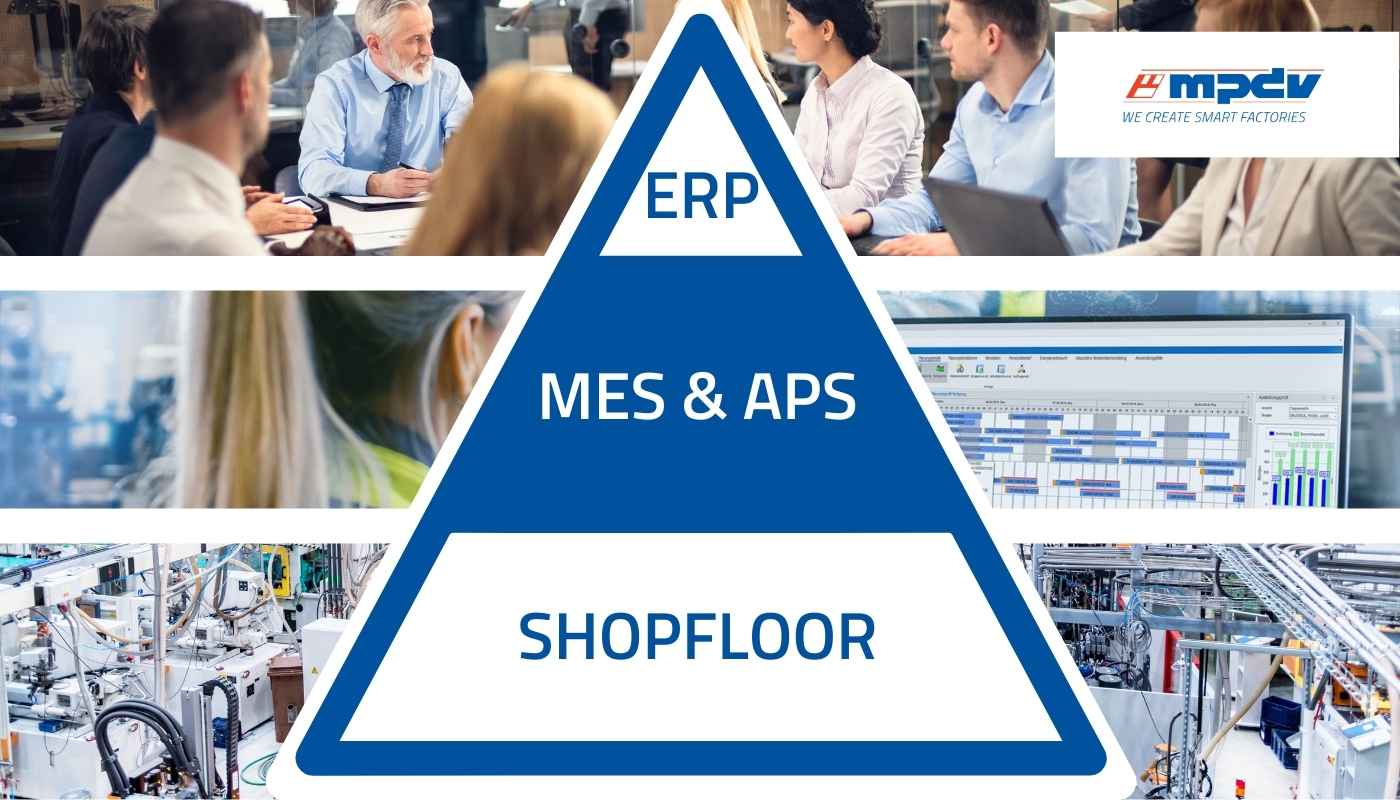
Find out how you can digitize your production
with solutions from MPDV!
Enterprise Resource Planning / ERP – Smart Factory Glossary
Enterprise Resource Planning, or ERP for short, is a business management software that plans a company's resources with the aim of optimizing business processes and increasing efficiency. The resources commonly planned by an ERP system are production units, tools, machines, capacities, material, personnel, and capital, as well as information and communication technology.
The software enables companies to digitalize, manage, and automate business processes. An ERP system focuses on increasing transparency and efficiency of activities and optimizing the overall effectiveness of an enterprise. To this end, all data of business activities is centrally integrated and managed in the ERP system. The data includes information from purchase and sales, warehousing, finance, and HR.
By consistently saving data in a central database, data accuracy and reliability is enhanced. As a result, decision-making is based on real-time information and business activities can be simplified.
Benefits of an ERP system
- Increase efficiency: ERP software automates regular tasks and simplifies business processes saving time and resources of a company.
- Promote data integration: An ERP combines information from different business units in a common database. Companies thus gain an overall picture of their activities and avoid redundant work.
- Support decision-making: The software accesses data in a central database and evaluates it. The management can make informed decisions based on reliable data.
- Improve risk management: ERP systems help to comply with industry standards and legal regulations, thus minimizing risks.
Interaction of ERP and MES
For corporate management, the Manufacturing Execution System is secondary to an Enterprise Resource Planning (ERP). The ERP system focuses on business activities and promotes all operational processes of a company. The software handles the processing of customer orders, invoicing, and all aspects of profitability. The system supports the seamless integration of all processes and ensures the exchange of information.
A Manufacturing Execution System (MES) operates on a production control level and focuses on organizational activities. The system collects production data in real time, analyzes the data, and displays the results. An MES therefore provides a comprehensive overview of all production processes. The aim of the MES is to minimize inefficiencies such as unnecessary waiting times or the production of faulty products. Machine operators or supervisors can easily identify opportunities for improvement in production and take appropriate measures.
Sales orders are recorded in the ERP system and sent to the Manufacturing Execution System where the orders are executed. During manufacturing, the MES collects process and machine data, for example, and aggregates this data. The data is then returned to the ERP and evaluated.

Source
- Enterprise-Resource-Planning: Wikipedia, 18.01.2024 [online] https://en.wikipedia.org/wiki/Enterprise_resource_planning (requested on 22.03.2024).
Would you like more information? We are happy to help.
Just fill in the form below. We will take care of your inquiry promptly.